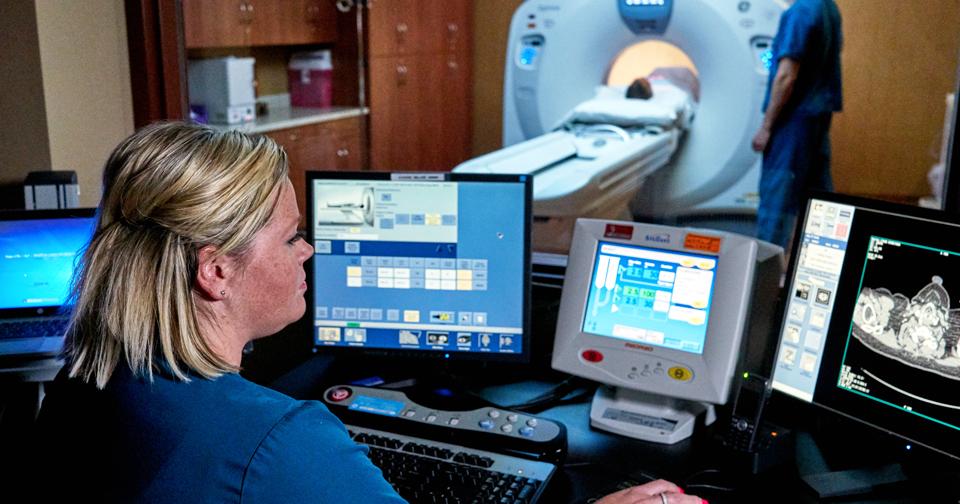Effective Ways To Treat Thymoma
The thymus gland is responsible for maintaining the body's supply of healthy T-cells, which are vital in our ability to fight off viruses, bacteria, and fungi. In rare instances, a tumor can form in the thymus gland and inhibit its ability to function. In most cases, the tumor remains confined to the thymus gland, but, although it may not spread to other organs, it can do plenty of damage. By affecting the development of T-cells, thymoma can interfere with the immune system's ability to fight off disease. The thymus gland is most active in children and through adolescence, shrinking as we age, but anyone can be affected by a thymoma. Although only one person out of every 1.5 million individuals will develop a thymoma, it is still worthwhile to know the typical treatments for this condition.
Tumor Removal

One of the most common treatments for thymoma is the surgical removal of the tumor, which is typically performed by a thoracic surgeon. The procedure involves cutting away the tumor, though some of the surrounding healthy tissue is usually removed as well. This is usually done for early-stage cases of thymoma when the tumor is still small. In these cases, the individual will likely not need to undergo additional treatment. By cutting away the surrounding healthy tissue, the surgeon ensures the tumor has been completely removed, leaving a minimal chance that the tumor will return. In late-stage thymomas, the tumor has grown larger and may have spread to the lungs. In these cases, the surgeon may have to remove a section of the lung as well, and it may not be possible to remove the entire tumor. If this is the case, the surgeon will discuss this with the patient and explain what symptoms may be alleviated through removing a part of the tumor. Even in these cases, surgery is often the preferred method of treatment.
Keep reading to learn about the next method used for treating thymoma now.
Radiation Therapy

Another treatment option for thymoma is radiation therapy, which involves attacking the tumor with high-potency energy X-rays. This type of procedure is done by a specialist called a radiation oncologist, because it requires focusing an external machine at the tumor within the thymus. This procedure, which is called external-beam therapy, involves administering many radiation treatments over an extended period. Multiple treatments are necessary for maximum effectiveness.
Typically, radiation is used in conjunction with another treatment. For instance, if a surgical procedure failed to remove all of the tumor, radiation therapy may be used to finish eradicating the tumor. Similarly, radiation treatments may be necessary to supplement chemotherapy, depending on the nature of the tumor. Radiation often affects patients and doctors warn them ahead of time that side effects may become severe. The side effects include watery or loose stool, an upset or unsettled stomach, skin rashes, difficulty in breathing, and unexplained fatigue. While these side effects may be troublesome, they're only temporary and often fade as soon as treatment has been completed.
Uncover the next treatment option for thymoma now.
Targeted Therapy

If a thymoma is caught early enough, it may be more effectively treated through targeted therapy. This involves using medication that isolates the specific genes, proteins, and other characteristics of the tumor. The drug will target these aspects of the cancer cells to keep them from growing, so healthy cells in the body will be protected. Each tumor is different and unique to the individual, so targeted therapy involves examining the tumor to identify the best medication in each case. By looking at the proteins, genes, and other traits of the tumor, doctors can determine the best medication for each patient. This area of treatment is continuously improving, as researchers learn more about identifying specific genetic markers of cancer cells. In time, it may be possible to identify the risk of cancer cells at a molecular level, so the individual can be treated before the cells ever have a chance to grow. While this is a promising way to treat a thymoma, patients should discuss possible side effects with their doctors.
Read about a classic treatment for tumors and cancer now.
Chemotherapy

Chemotherapy is another method of using medication to isolate and destroy cancer cells in the body. Instead of targeting specific cells in the tumor, these drugs identify cancerous cells and prevent them from multiplying and spreading to other cells in the body. These drugs are typically administered by an oncologist, a doctor who specializes in diagnosing and treating cancer. The medication enters the bloodstream and travels to all parts of the body in search of cancer cells to attack. Chemotherapy can be given intravenously or orally via a pill or capsule. Patients must usually adhere to a medication schedule, which involves taking doses at regular intervals. The oncologist may recommend one drug or multiple drugs to be taken at the same time, depending on the patient's condition and its severity. This treatment can help reduce the size of a tumor before surgery is performed to completely remove it. Additionally, this type of treatment may be the best alternative, when the tumor cannot be completely removed.
Get to know another form of therapy used to treat thymoma patients.
Hormone Therapy

Some doctors prefer to try hormone therapy, which relies on administering hormonal supplements in controlled dosages. The hormones prevent the cancer cells from growing and spreading beyond the thymus gland. This type of thymoma treatment isn't ideal for everyone, but a doctor may consider it when the patient meets certain criteria. In addition to examining the nature and severity of the tumor, factors such as the patient's age and the number of hormonal receptors on the tumor may dictate whether hormone therapy is ideal. The supplemental hormones seek out the receptors on the tumor and attach themselves to the tumor, allowing them to interfere with cell growth. Over time, this will cause the cells of the tumor to wither and die. This may be an ideal treatment for some patients, but it's necessary to discuss the possibility with a doctor. Hormone therapy can help treat patients without many of the side effects produced by other types of therapy.
